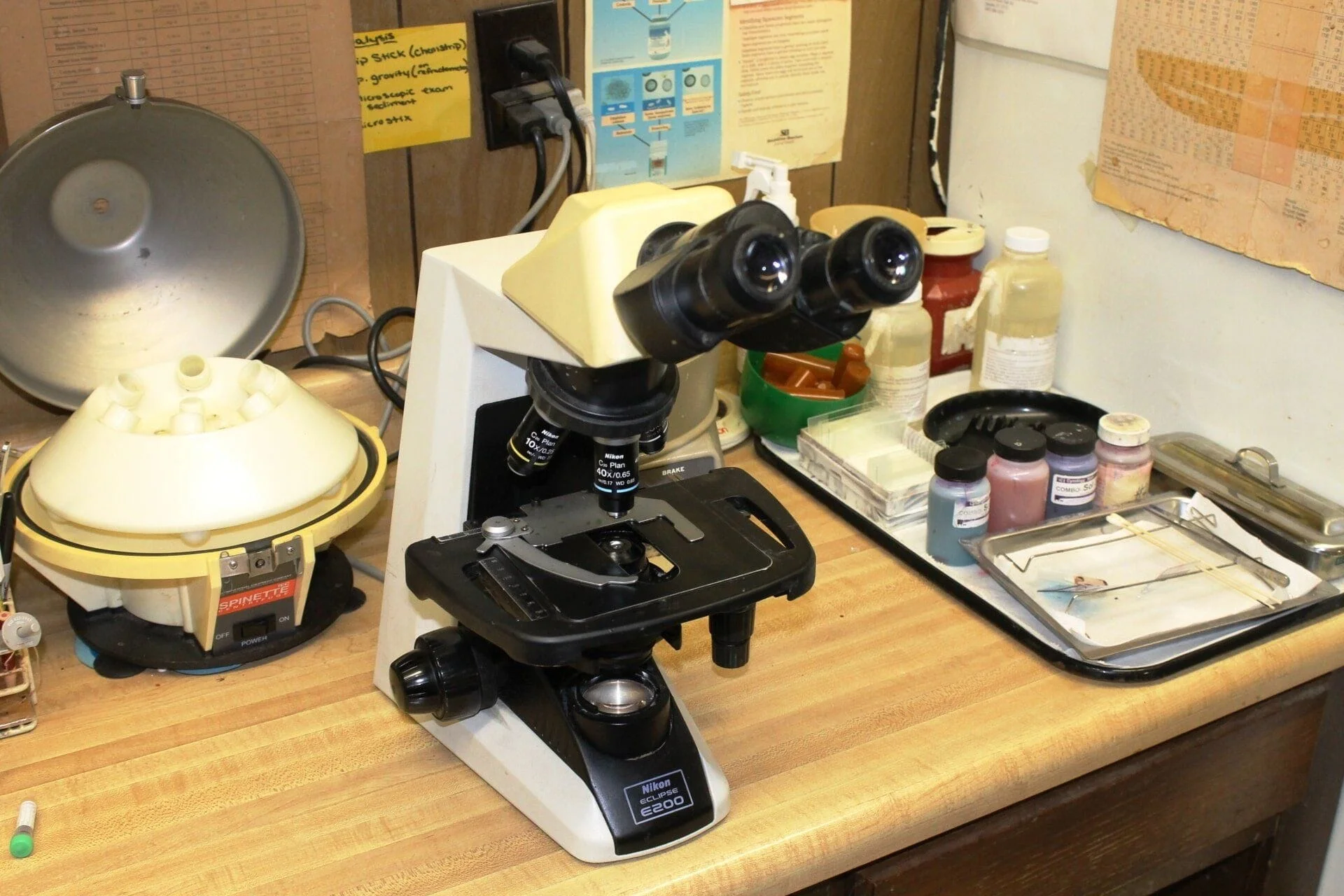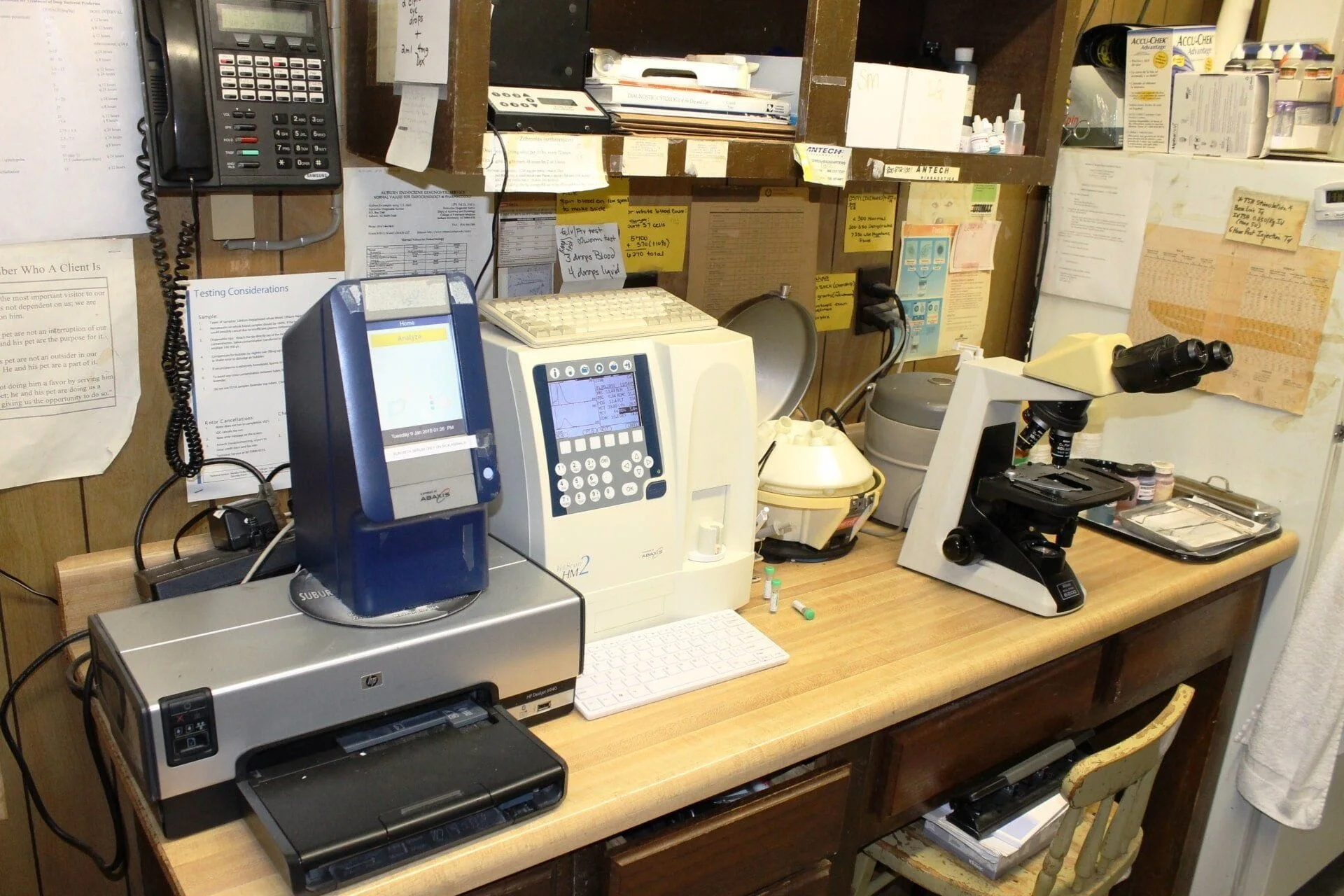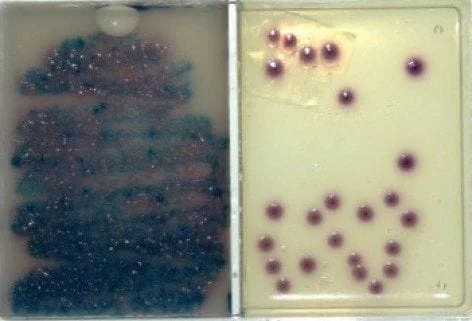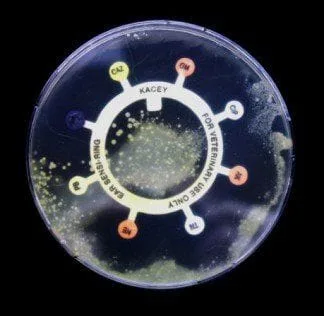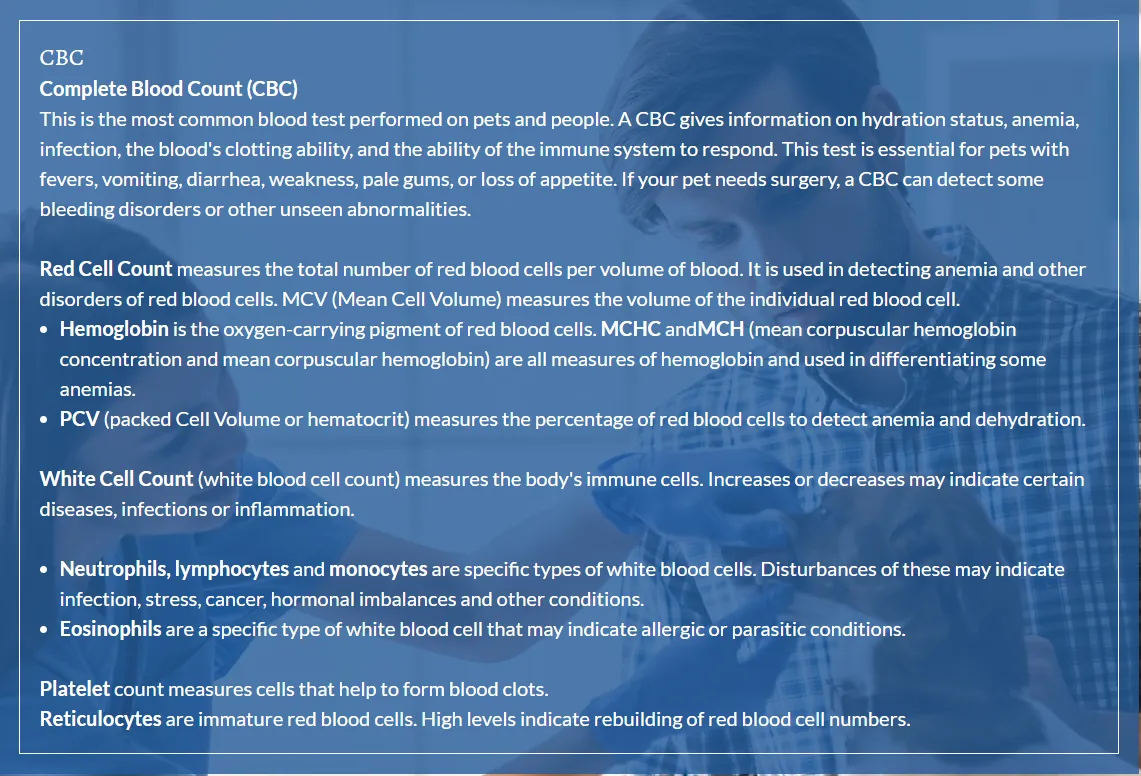Our Onsite Laboratory
We have invested in an in-house laboratory so that we can get your pet's blood test results quickly. We usually have blood results within 30 minutes.
We have a state of the art blood cell counter as well as a blood chemistry analyzer. Our microscope is a very good Nikon, so that we can see parasites and cells from the ears or tumors clearly. We have a bacterial incubator that helps us do in-house bacterial cultures and antibiotic sensitivity tests overnight.
We also have many of the new SNAP tests that are done within 10 minutes to detect specific diseases like heartworms, parvovirus and feline leukemia.
Not all of the tests we need to run are available to a small lab like ours, so we may send out your pet's blood and usually get results on our computer the following day.
Bacterial Culture System (left) and Antibiotic Sensitivity (right) can be done in our office overnight.
Special Tests In-Office
- Thyroid Hormone Level
- Cytology for ear infections and to help determine the type of mass growing on the skin.
- Bacterial culture and antibiotic sensitivity
- Fungal Cultures for ringworm
- Skin scrapings to check for mange
- Canine Heartworm Disease
- Canine Parvovirus
- Fecal exam - for intestinal parasites
- Feline Leukemia/Feline Immunodeficiency Virus/ Feline Heartworms
Blood Chemistry
Blood chemistries These common blood serum tests evaluate organ function, electrolyte status, hormone levels and more. They are important in evaluating older pets, pets with vomiting, diarrhea or toxin exposure, pets receiving long-term medications and health before anesthesia.
- Na (sodium) is an electrolyte lost with vomiting, diarrhea, kidney disease and Addison's disease. This test helps indicate hydration status.
- K (potassium) is an electrolyte lost with vomiting, diarrhea or excessive urination. Increased levels may indicate kidney failure, Addison's disease, dehydration or urethral obstruction. High levels can lead to a heart attack.
- Cl (chloride) is an electrolyte often lost with vomiting and Addison's disease. Elevations often indicate dehydration.
- Bicarb is an indication of acid / base balance and can be changed with vomiting and other conditions.
- BUN (blood urea nitrogen) indicates kidney function. An increased level in the blood is called azotemia and can be caused by kidney, liver, heart disease, urethral obstruction, shock and dehydration.
- CREA (creatinine) reveals kidney function. This test helps distinguish between kidney and non-kidney causes of elevated BUN
- Ca (calcium) deviations can indicate a variety of diseases. Tumors, hyperparathyroidism, kidney disease and low albumin are just a few of the conditions that alter serum calcium.
- PHOS (phosphorus) elevations are often associated with kidney disease, hyperthyroidism and bleeding disorders.
- AMYL (amylase) elevation may indicate pancreatitis or kidney disease.
- LIP (lipase) is an enzyme that may indicate pancreatitis.
- TP (total protein) indicates hydration status and provides additional information about the liver, kidneys and infectious diseases.
- ALB (albumin) is a serum protein that helps evaluate hydration, hemorrhage, intestinal, liver, and kidney disease.
- GLOB (globulin) is a blood protein that often increases with chronic inflammation and certain disease states, including some cancers.
- TBIL (total bilirubin) elevations may indicate liver or hemolytic disease. This test helps identify bile duct problems and certain types of anemia.
- ALKP (alkaline phosphatase) elevations may indicate liver damage, Cushing's disease or active bone growth in young pets. This test is especially significant in cats.
- ALT (alanine aminotransferase) is a sensitive indicator of active liver damage but doesn't indicate the cause.
- GGT (gamma glutamyl transferase) is an enzyme that indicates liver disease or corticosteroid excess.
- AST (asparate aminotransferase) increase may indicate liver, heart or skeletal muscle damage.
- CK (Creatine Kinase) is an enzyme that indicates muscle damage.
- LDH (Lactic Dehydrogenase) is an enzyme that can be elevated in muscle, heart and liver disease.
- CHOL (cholesterol) is used to aid in the diagnosis of hypothyroidism, liver disease, Cushing's disease and diabetes mellitus.
- GLU (glucose) is a blood sugar. Elevated levels may indicate diabetes mellitus. Low levels can cause collapse, seizures or coma.
- Cortisol is a hormone that is measured in tests for Cushing's disease (the low-dose dexamethasone suppression test) and Addison's disease (ACTH stimulation test)
- T4 (thyroxine) is a thyroid hormone. Decreased levels often signal hypothyroidism in dogs, while high levels may indicate hyperthyroidism in cats.

